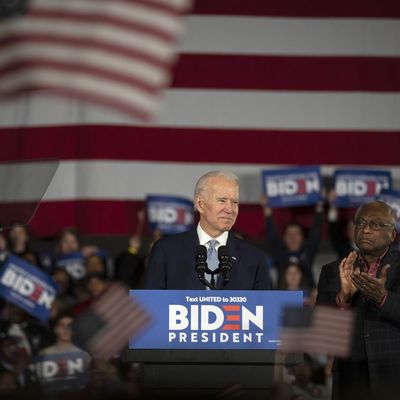
As we move toward what could become one of the more turbulent general elections in living memory, the public-opinion-research industry will face significant challenges. No matter what they say, media folk and political actors depend heavily on polls (some public, some private) to understand what the public appears to be demanding from its elected officials and candidates, and how campaigns are responding to and trying to manipulate public opinion. But confidence in the accuracy of polls has (rightly or wrongly) eroded significantly in recent years, taking a particularly big hit in 2016, when polls took the brunt of the blame for the surprise so many Americans felt when Donald Trump won.
With the self-same Trump much more aggressively attacking the credibility of any polls showing anything other than massive public support for him and his performance as president, it’s a good idea to look at the objective record of the polls now and then, as Nathaniel Rakich has done in conjunction with FiveThirtyEight’s updated pollster ratings.
Polling primaries is inherently more perilous than general elections, in part because turnout is so hard to estimate, and in part because the deeply entrenched partisan leanings of the electorate that undergird general-election polling are irrelevant in primaries. So, unsurprisingly, polling of the 2020 Democratic presidential primaries has not been terribly accurate overall — though no worse than polling for 2016 primaries. But as Rakich demonstrates, polling errors this year were concentrated on a very brief period in the primaries:
* Polls of the contests on Super Tuesday had a weighted average error of 12.8 points, with 60 percent of them conducted mostly before Biden’s big South Carolina win and subsequent endorsements by onetime 2020 presidential contenders former South Bend, Indiana, Mayor Pete Buttigieg and Sen. Amy Klobuchar.
* South Carolina polls had a weighted average error of 17.2 points (!), and 75 percent of them were conducted mostly before Rep. Jim Clyburn’s endorsement of Biden.
* Polls of all other contests — Iowa, New Hampshire, Nevada and every post-Super Tuesday state — had a weighted average error of 7.1 points, which is quite good by historical standards for primary polls.
In other words, polls — like the entire political commentariat and probably people in most of the campaigns — failed to fully anticipate the Biden surge between the Nevada caucuses and Super Tuesday that turned the left-for-dead former veep into the prohibitive front-runner, seemingly overnight.
So looking forward, there’s no particular reason to think the polls are going to do any better or worse than in the recent past. The coronavirus pandemic is having a mixed effect on polling. On the one hand, it is very difficult to properly weight polls to reflect the likely composition of an electorate in a pandemic, particularly with so many states struggling to adapt and promoting (to a lesser or greater degree) voting by mail. On the other hand, people forced to stay at home are much more likely to respond to polls. All other things being equal, higher response rates are likely to improve polling accuracy.
Obviously, a lot depends on the conditions that prevail as we get closer to November. But in a year with so many astounding developments, most of them far transcending politics, shaky polls may be the least of our problems. Slowly developing election returns that tempt losers to contest the results are far more worrisome.






























